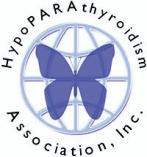When I was just 18 years old, I was diagnosed with hypoparathyroidism, a rare disease that causes seizures, extreme fatigue and other life-altering complications.
About 80,000 Americans live with hypoparathyroidism. And right now, they’re suffering even more than usual.
That’s because the FDA pressured the manufacturer of the only FDA approved hormone treatment for hypoparathyroidism and pulled it off the market in September 2019 due to safety concerns with the drug’s delivery device. Ever since, patients have seen their symptoms dramatically worsen.
It’s time for FDA officials to realize how profoundly debilitating this condition is, stop dragging their feet, and give patients additional and better treatment options.
Hypoparathyroidism occurs when the parathyroid glands — located on the thyroid glands in people’s necks — are either removed, injured, or can’t produce the parathyroid hormone for genetic reasons. Patients with this condition often experience unstable and fluctuating calcium levels.
When blood calcium levels drop too low, patients can experience "calcium crashes," a dangerous complication that causes people to have seizures or act delirious. Sadly, these calcium crashes are all too common – almost 70 percent of hypoparathyroidism patients have experienced a calcium crash in the past year. My own daughter, who also has hypoparathyroidism, has been rushed multiple times to the ER due to calcium crashes.
Hypoparathyroidism is mentally taxing as well and can cause significant "brain fog." Many patients can’t hold down normal jobs.
For decades, the only treatment option was a combination of calcium and active vitamin-D supplements. Finding the right balance is extremely difficult. Too little can lead to calcium crashes, but too much can cause organ calcification.
Then, in 2015, everything changed. The FDA approved the first parathyroid hormone therapy – called Natpara – as an adjunct therapy for hypoparathyroidism to be used with supplements.
For a few brief years, our lives changed. Patients felt their conditions were better controlled for the first time ever. But last year, the FDA raised concerns about the possible danger of small rubber particles from the delivery device contaminating the drug, leading the manufacturer to take the treatment off the market through a voluntary recall.
Gaining – and then losing – an effective treatment has been gut-wrenching for people with hypoparathyroidism.
Frustratingly, it’s unclear when the manufacturer will be allowed to reintroduce Natpara to the broader market. For the foreseeable future, the overwhelming majority of patients are stuck with supplements as a standard of care treatment.
The FDA has done an amazing job of granting rapid preliminary approvals and authorizations of treatments for COVID-19.
It’s time for the agency to show that same urgency for Americans suffering from hypoparathyroidism – by bringing Natpara back to market and giving all patients access to new and promising medicines that have been proven safe in clinical trials. There’s no reason for these patients to suffer any longer.
Bob Sanders is chairman of the Hypoparathyroidism Association.












No Comment